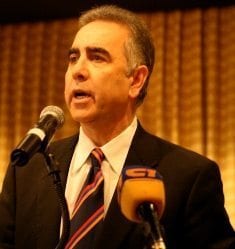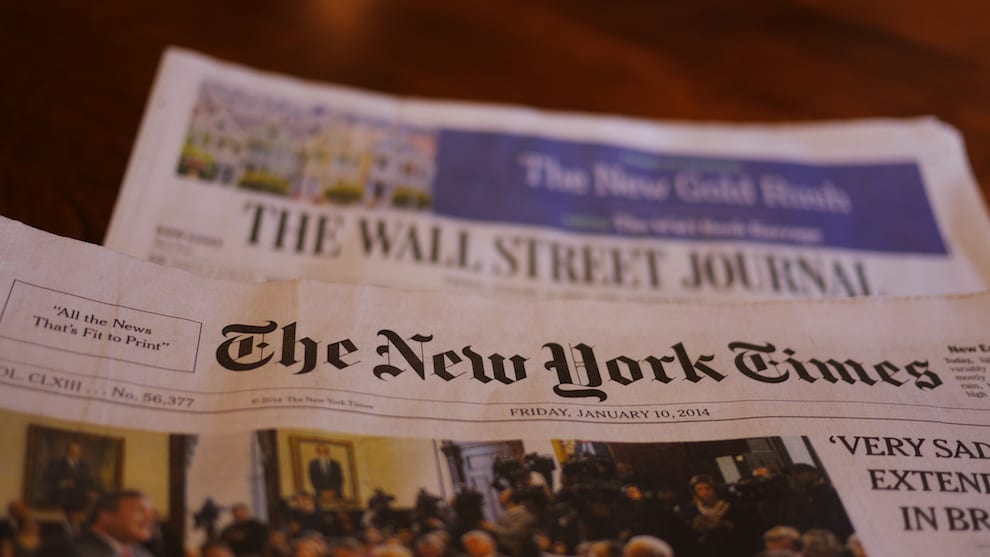Last week, I wrote about a dozen public relations and lobbying companies the Turkish government had already hired. In recent weeks, the Republic of Turkey added two new such firms: Ballard Partners and Burson-Marsteller.
Turkish officials don’t seem to realize that having more than a dozen lobbying firms not only is a waste of money due to unnecessary duplication, it is also a waste of the valuable time of several Turkish Embassy officials in Washington, D.C., spending a lot of their time on a daily basis to give detailed instructions to these lobbying firms, read their reports, comment on them, meet with them, forward their reports to the Foreign Ministry with lengthy explanations, and take corrective action based on Ankara’s reaction. Unless such an intense and elaborate effort is made in working with so many lobbying firms, Turkish officials are simply wasting their country’s money!
I am happy that the Turkish government has decided to waste more of its money by agreeing to pay Brian Ballard’s firm, Ballard Partners, $1.5 million from May 15, 2017 to May 14, 2018. According to Ballard’s registration with the Justice Department, the firm will provide the Turkish government “with advocacy services relative to US-Turkey bilateral relations.” The lobbying activities include “advising, counseling, and assisting [Turkey] in communications with US Government officials. Maintaining US relations with this important NATO partner.”
Brian Ballard is the longtime lobbyist for Pres. Donald Trump as the representative of the Trump Organization in Tallahassee, Florida. He raised $16 million for Trump’s presidential campaign while serving as his state finance chairman and later as vice chairman of the President’s inaugural committee. Ballard issued a statement asserting that he “still speaks to Trump on occasion.” Susie Wiles, who was introduced by Ballard to Trump during the campaign, served as Trump’s Florida campaign manager. She is now working for Ballard Partners. Ballard also hired former Congressman Robert Wexler (Democrat-Florida) to be in charge of the Turkish lobbying account. As co-chair of the Congressional Turkey Caucus, Cong. Wexler actively lobbied and voted against a proposed House Armenian Genocide resolution on Oct. 10, 2007. His new job is his reward for staunchly supporting Turkey in Congress for years!
According to the Tampa Bay Times, Ballard’s first interaction with Trump occurred several years ago when he wrote a letter to Trump after reading his book, Art of the Deal, and Trump answered. Ballard wrote back stating: “if you ever have any issues in Florida, please don’t hesitate to call.” Trump called him after purchasing Mar-a-Largo in 1985, and paid Ballard at least $460,000 from 2013 to 2015 for lobbying work. Trump personally called Ballard asking for his help when he launched his presidential campaign. Ballard is now organizing a fundraising banquet for Trump on June 28. The cost is $35,000 per person and $100,000 to join the host committee.
Ballard makes no secret of his special connections with Pres. Trump. “I would imagine if Hillary Clinton were elected I wouldn’t be here,” he told the Tampa Bay Times. Ballard said “he doesn’t discuss how he works or his contacts with the president. He’s been spotted at the White House, however, and Trump maintains phone relationships with allies.”
In addition, the Turkish Embassy in Washington D.C., signed a contract with Burson-Marsteller for $1.1 million for the period May 1-Dec. 31, 2017. Ironically, from 2012 to 2015, Burson-Marsteller was doing lobbying work for the Alliance for Shared Values, a group tied to the Turkish Muslim cleric Fethullah Gulen whom Erdogan opposes and seeks his extradition from the US to Turkey. The Turkish government reportedly threatened Burson-Marsteller’s operations in Turkey if the firm continued to lobby for Gulen.
Burson-Marsteller is supposed to provide “integrated public relations services to support the [Turkish] Embassy’s communications objectives in the United States. Activities include media outreach, monitoring and analysis; event support; stakeholder engagement; social media counsel; and support for Turkish consulates in Boston, Chicago, Houston, Los Angeles, Miami and New York.”
It is noteworthy that despite the millions of dollars spent by Turkey on more than a dozen high-powered lobbying and public relations firms, they could not counter the large number of news articles and TV coverage critical of the Turkish government for the attack on peaceful protesters by Pres. Erdogan’s bodyguards in front of the Turkish Ambassador’s residence in Washington, D.C., on May 16. This fact reinforces my firm belief that Turkey is wasting millions of dollars annually trying to cleanse its image in the U.S., which is further tarnished by the Turkish government’s brutal policies both at home and abroad!



